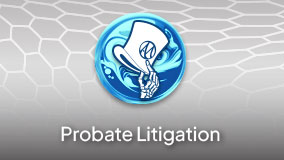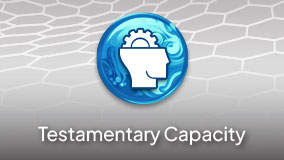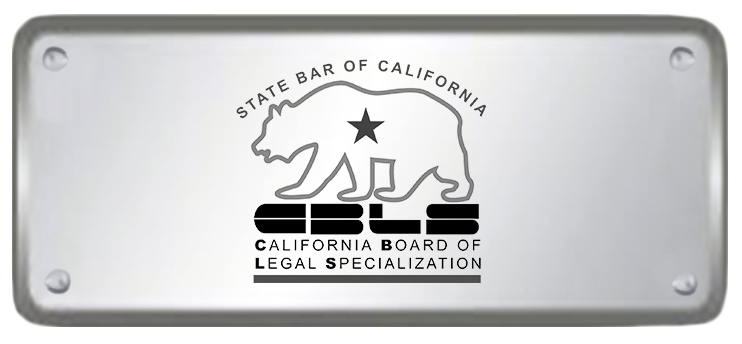CONSERVATORSHIP IN CALIFORNIA
Conservatorship is a legal arrangement that grants a responsible individual or organization the authority to make crucial decisions on behalf of another person who is deemed “incapacitated,” i.e. they are unable to make such decisions independently. In California, the conservatorship process involves a thorough evaluation of the impaired individual, court hearings, and the appointment of a responsible conservator. The conservator has important duties and responsibilities, including decision-making, reporting, and providing care for the conservatee. Understanding the complexities of conservatorship is crucial for those involved to ensure the well-being and autonomy of the conservatee while complying with the legal requirements established by the California Probate Code.
What are the Different Types of Conservatorship in California?
GENERAL CONSERVATORSHIP:
This type of conservatorship is applicable to adults who are unable to manage their personal care or finances due to physical or mental incapacitation. A general conservatorship can be requested by concerned family members, friends, or interested parties.
LIMITED CONSERVATORSHIP:
Limited conservatorship is designed specifically for adults with developmental disabilities who need assistance with personal care and decision-making. The focus of a limited conservatorship is to promote independence and self-sufficiency while ensuring the individual’s well-being.
What is the Conservatorship Process in California?
The conservatorship process begins with filing a petition with the probate court in the county where the proposed conservatee resides. The petition must include information about the proposed conservator, the reasons for seeking conservatorship, and any supporting documentation.
The proposed conservatee, their immediate family members, and other interested parties must then be notified about the conservatorship hearing. The court conducts a hearing where all interested parties can present evidence and arguments for or against the conservatorship.
If the court determines that the conservatee lacks capacity, and a conservatorship is necessary and in the best interests of the conservatee, it will appoint a conservator. The conservator assumes legal responsibility for making decisions and managing the affairs of the conservatee.
What are the Rights and Responsibilities of the Conservator?
The conservator has the authority to make decisions related to the conservatee’s personal care, healthcare, residential arrangements, and finances. However, the conservator must always act in the best interests of the conservatee, considering their wishes, values, and preferences.
The conservator is required to file periodic reports with the court, providing details about the conservatee’s well-being, financial transactions, and any significant changes. Accurate accounting records must be maintained to ensure transparency and accountability.
The conservator has a legal duty to provide for the conservatee’s needs, including their physical, emotional, and financial well-being, which is referred to as the “Duty of Care”. This includes ensuring the conservatee receives appropriate medical care, is living in a safe environment, and maintaining regular contact with the conservatee.
How is a Conservatorship Terminated and Modified?
A conservatorship can be terminated if the conservatee regains the capacity to manage their own affairs or upon their death. Interested parties, or the conservatee, can file a petition with the court to request the termination of the conservatorship.
The terms of a conservatorship can be modified if there is a change in the conservatee’s condition or circumstances. Parties can petition the court for modifications to adjust the conservatorship’s scope or to replace the conservator.
How Can an Attorney Help Me with a California Conservatorship?
At Antonyan Miranda, our attorneys have years of experience in conservatorship law and can provide invaluable assistance throughout the process of establishing and managing a conservatorship in California. Here are some ways in which our attorneys can help:
LEGAL EXPERTISE AND GUIDANCE:
Our attorneys can explain the intricacies of conservatorship law in California, ensuring you understand your rights and responsibilities. We can assess your specific situation, provide personalized advice, and guide you through the legal process.
PETITITION PREPARATION AND FILING:
Filing a conservatorship petition involves complex legal procedures and documentation. Our attorneys can assist in preparing the petition, ensuring that all necessary information is included and supporting documentation is provided.
REPRESENTATION IN COURT:
During court hearings, having legal representation is crucial to present your case effectively. Our attorneys can advocate for your interests, present evidence, and argue on your behalf before the court.
COMMUNICATION AND DOCUMENTATION:
Our attorneys can handle communication with the court, investigators, and other parties involved in the conservatorship process. We can help ensure that all required documents are properly prepared, filed, and submitted in a timely manner
EVALUATION AND INVESTIGATION:
Our attorneys can help navigate the evaluation and investigation phase by working with court-appointed investigators and providing relevant information. We can address any concerns or issues that arise during this process.
NEGOTIATION AND DISPUTE RESOLUTION:
If disputes or conflicts arise between parties involved in the conservatorship, our attorneys can help negotiate and seek resolutions that are in the best interest of the conservatee. In some cases, mediation or alternative dispute resolution methods can be employed, and an attorney can guide you through these processes.
ONGOING COMPLIANCE AND REPORTING:
Once the conservatorship is established, ongoing compliance with legal requirements is essential. Our attorneys can assist with the preparation and filing of necessary reports, ensuring compliance with court orders and legal obligations.
TERMINATION OR MODIFICATION OF CONSERVATORSHIP:
If circumstances change or the conservatorship is no longer needed, an attorney can guide you through the process of terminating or modifying the conservatorship. They can prepare and file the necessary documentation and represent your interests in court proceedings.
At Antonyan Miranda, our attorneys have a thorough understanding of conservatorship law and provide expertise, support, and guidance throughout the entire process, ensuring that your rights are protected and that the best interests of the conservatee are upheld. Call us at 619-255-7744 to speak with one of our Concierge attorneys or visit us at www.expertprobatelaw.com for more information.
FOLLOW US!
CONSERVATORSHIP IN CALIFORNIA
Conservatorship is a legal arrangement that grants a responsible individual or organization the authority to make crucial decisions on behalf of another person who is deemed “incapacitated,” i.e. they are unable to make such decisions independently. In California, the conservatorship process involves a thorough evaluation of the impaired individual, court hearings, and the appointment of a responsible conservator. The conservator has important duties and responsibilities, including decision-making, reporting, and providing care for the conservatee. Understanding the complexities of conservatorship is crucial for those involved to ensure the well-being and autonomy of the conservatee while complying with the legal requirements established by the California Probate Code.
What are the Different Types of Conservatorship in California?
GENERAL CONSERVATORSHIP:
This type of conservatorship is applicable to adults who are unable to manage their personal care or finances due to physical or mental incapacitation. A general conservatorship can be requested by concerned family members, friends, or interested parties.
LIMITED CONSERVATORSHIP:
Limited conservatorship is designed specifically for adults with developmental disabilities who need assistance with personal care and decision-making. The focus of a limited conservatorship is to promote independence and self-sufficiency while ensuring the individual’s well-being.
What is the Conservatorship Process in California?
The conservatorship process begins with filing a petition with the probate court in the county where the proposed conservatee resides. The petition must include information about the proposed conservator, the reasons for seeking conservatorship, and any supporting documentation.
The proposed conservatee, their immediate family members, and other interested parties must then be notified about the conservatorship hearing. The court conducts a hearing where all interested parties can present evidence and arguments for or against the conservatorship.
If the court determines that the conservatee lacks capacity, and a conservatorship is necessary and in the best interests of the conservatee, it will appoint a conservator. The conservator assumes legal responsibility for making decisions and managing the affairs of the conservatee.
What are the Rights and Responsibilities of the Conservator?
The conservator has the authority to make decisions related to the conservatee’s personal care, healthcare, residential arrangements, and finances. However, the conservator must always act in the best interests of the conservatee, considering their wishes, values, and preferences.
The conservator is required to file periodic reports with the court, providing details about the conservatee’s well-being, financial transactions, and any significant changes. Accurate accounting records must be maintained to ensure transparency and accountability.
The conservator has a legal duty to provide for the conservatee’s needs, including their physical, emotional, and financial well-being, which is referred to as the “Duty of Care”. This includes ensuring the conservatee receives appropriate medical care, is living in a safe environment, and maintaining regular contact with the conservatee.
How is a Conservatorship Terminated and Modified?
A conservatorship can be terminated if the conservatee regains the capacity to manage their own affairs or upon their death. Interested parties, or the conservatee, can file a petition with the court to request the termination of the conservatorship.
The terms of a conservatorship can be modified if there is a change in the conservatee’s condition or circumstances. Parties can petition the court for modifications to adjust the conservatorship’s scope or to replace the conservator.
How Can an Attorney Help Me with a California Conservatorship?
At Antonyan Miranda, our attorneys have years of experience in conservatorship law and can provide invaluable assistance throughout the process of establishing and managing a conservatorship in California. Here are some ways in which our attorneys can help:
LEGAL EXPERTISE AND GUIDANCE:
Our attorneys can explain the intricacies of conservatorship law in California, ensuring you understand your rights and responsibilities. We can assess your specific situation, provide personalized advice, and guide you through the legal process.
PETITION PREPARATION AND FILING:
Filing a conservatorship petition involves complex legal procedures and documentation. Our attorneys can assist in preparing the petition, ensuring that all necessary information is included and supporting documentation is provided.
REPRESENTATION IN COURT:
During court hearings, having legal representation is crucial to present your case effectively. Our attorneys can advocate for your interests, present evidence, and argue on your behalf before the court.
COMMUNICATION AND DOCUMENTATION:
Our attorneys can handle communication with the court, investigators, and other parties involved in the conservatorship process. We can help ensure that all required documents are properly prepared, filed, and submitted in a timely manner
EVALUATION AND INVESTIGATION:
Our attorneys can help navigate the evaluation and investigation phase by working with court-appointed investigators and providing relevant information. We can address any concerns or issues that arise during this process.
NEGOTIATION AND DISPUTE RESOLUTION:
If disputes or conflicts arise between parties involved in the conservatorship, our attorneys can help negotiate and seek resolutions that are in the best interest of the conservatee. In some cases, mediation or alternative dispute resolution methods can be employed, and an attorney can guide you through these processes.
ONGOING COMPIANCE AND REPORTING:
Once the conservatorship is established, ongoing compliance with legal requirements is essential. Our attorneys can assist with the preparation and filing of necessary reports, ensuring compliance with court orders and legal obligations.
TERMINATION OR MODIFICATION OF CONSERVATORSHIP:
If circumstances change or the conservatorship is no longer needed, an attorney can guide you through the process of terminating or modifying the conservatorship. They can prepare and file the necessary documentation and represent your interests in court proceedings.
At Antonyan Miranda, our attorneys have a thorough understanding of conservatorship law and provide expertise, support, and guidance throughout the entire process, ensuring that your rights are protected and that the best interests of the conservatee are upheld. Call us at 619-255-7744 to speak with one of our Concierge attorneys or visit us at www.expertprobatelaw.com for more information.


























